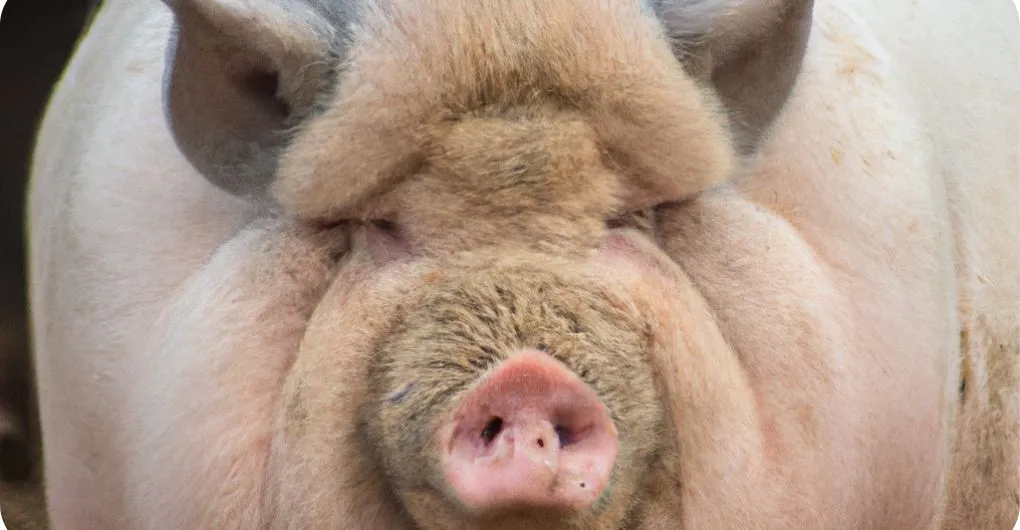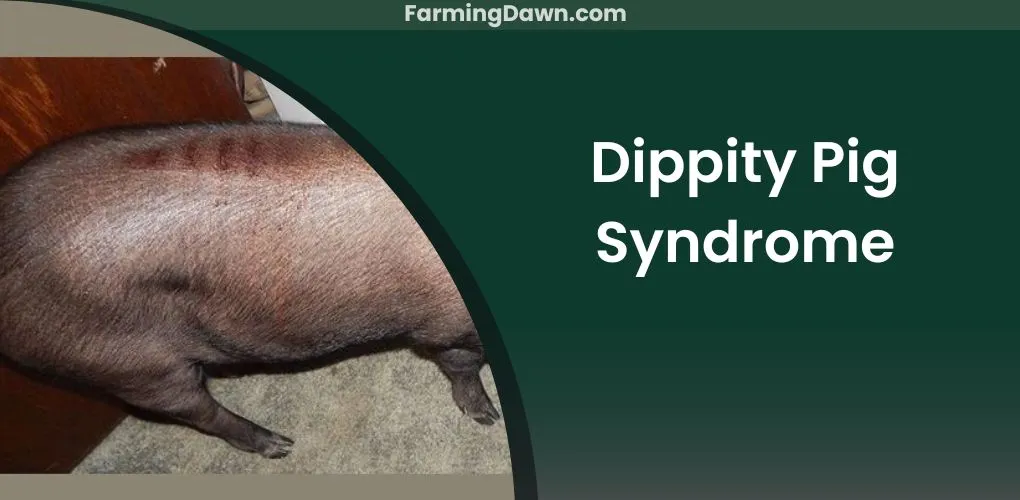My experience with Dippity Pig Syndrome started when my neighbor raised several hogs on his farm. One day, we noticed that one of them seemed to have difficulty getting up and moving around as the others did. When we brought him inside to look at him, we discovered he had contracted the mysterious syndrome known as “Dippity Pig.”
At first, I felt concerned; after all, no farmer wants their livestock to suffer! But then I began researching more about this peculiar condition and discovered some interesting things that gave me hope. This article will explain Dippity Pig Syndrome, how it affects pigs, and why farmers should be aware of this mysterious disorder.
What Is Dippity Pig Syndrome?
Dippity Pig Syndrome is a painful skin condition that occurs along the back of healthy young pigs and is believed to be triggered by a stressful situation. Many people say that this condition is similar to spoiled pig syndrome, but that is totally no the case. There is a difference betwenn the two.
However, coming back to the topic, it started with an old farmer who found some pigs on his farm displaying strange behavior—they were acting like they had human-like emotions and intelligence. He named this odd phenomenon “dippity pig syndrome” after the way these animals acted so differently from other livestock he’d seen before. The farmer isolated them for fear of anyone else finding out about it. Still, eventually, news spread across the country and even overseas.
How Lond Does Dippity Pig Syndrome Last?
The duration of DPP varies depending on the individual, and there is currently no known cure. In some cases, the condition can last for weeks, months, or even years.
Is Dippity Pig Syndrome Contagious?
Well, it’s a question that has been asking for an answer: is DPP contagious? To put it simply – yes! It can spread like wildfire if you don’t take the proper precautions.
Now, let me be clear: I’m not saying that dippity syndrome will cause an epidemic or anything of that nature. No, I am implying that if your pigs are suffering from this condition, then it would be wise to avoid them as much as possible and follow basic hygiene protocols such as washing your hands with soap and water after touching any surfaces they may have touched.
Symptoms Of Dippity Pig Syndrome
When it comes to the symptoms of Dippity Syndrome, a few stand out. The common symptoms include:
- Difficulty rising
- Dragging the rear limbs
- Circling
- Loss of balance.
In some cases, the pig may become paralyzed and unable to move.
You may also notice that your pig’s movements become more exaggerated than usual; they might even do strange things like turning in circles or hopping up on their hind legs! Finally, higher energy levels are common in pigs suffering from this condition. They will be active day and night, so keep an eye out for any changes in behavior.
In addition to these physical signs, many owners report their pigs becoming especially affectionate when they suffer from Dippity Syndrome. Suppose your pig is normally shy but suddenly wants lots of cuddles and attention. In that case, chances are she could be dealing with this condition.

How To Treat Dippity Pig Syndrome?
When it comes to treating dippity pig syndrome, a few options are available.
Provide Nutritional Diet and Exercise
First and foremost is the best way to prevent the condition from occurring in the first place – proper diet and exercise. Providing a healthy diet and plenty of physical activity can go a long way toward preventing DPP from developing in pigs. During DPP, if you do not provide good diet to your swine friend, then it will result in pig not eating food and becoming lazy.
Treatment Through Medication
The next step for treatment is medication. Several medications on the market can help reduce symptoms of DPP and make daily life easier for your pigs. In addition, certain lifestyle changes, such as providing a new house or environmental change can help reduce this condition. Pigs love mud and roll themselves in the dirt to reduce stress and gain pleasure.
Alternative Therapies
Now that I’ve discussed dietary changes let’s move on to alternative therapies. There are a few different types of treatments for Dippity Syndrome, and here are three in particular:
- Homeopathy: This involves using diluted substances derived from plants, animals, or minerals to treat the affected pig. It works by stimulating the body’s healing abilities rather than directly treating the condition.
- Acupuncture: This ancient Chinese practice uses needles inserted into specific points on the body to help balance energy flow throughout the body. It is believed that this can reduce inflammation associated with Dippity Syndrome, improve circulation, and normalize hormone levels.
Can A Pig Die From Dippity Pig Syndrome?
Yes, unfortunately, a pig can die from dippity pig syndrome. If it’s not treated quickly enough, the paralysis will spread throughout the body, eventually leading to death.
Does Dippity Pig Syndrome Go Away?
The answer to this question depends on the severity of each case. In some cases, treatment may help alleviate symptoms and improve mobility in afflicted pigs. Treatment usually includes providing supportive care such as physical therapy or nutritional supplements. Corrective surgery may also be performed when necessary to correct any underlying bone deformities contributing to the condition.
Ultimately, working with a knowledgeable veterinarian is important to create an effective plan tailored specifically to your pet’s needs. With proper diagnosis and appropriate treatment, many pigs with dippity pig syndrome experience improved quality of life and greater mobility over time.
Dippity Pig Syndrome-Conclusion
In conclusion, dippity pig syndrome can be challenging for pigs and their owners. It is important to learn the signs of depression in your pet pig so that you are prepared if they ever show symptoms of this rare disorder.
Dippity Pig Syndrome requires special care and attention from caregivers; however, with patience and understanding, it is possible to manage this condition successfully. Many pigs live longer and happier lives when diagnosed early on and treated appropriately.
It’s heartbreaking to watch our beloved little oinkers suffer. Still, we mustn’t forget: although dippity pig syndrome may seem impossible, it doesn’t have to be a death sentence! With love, dedication, and diligence, we can create safe havens where these precious piggies can go back to living life “hog wild!”






